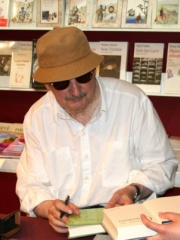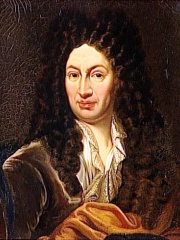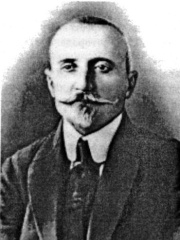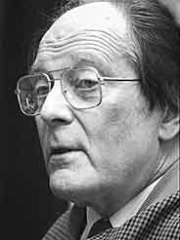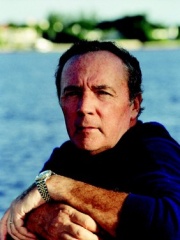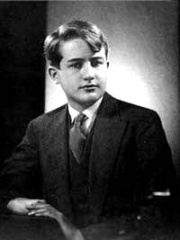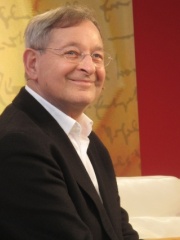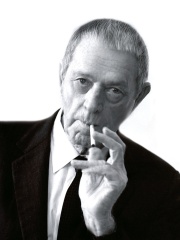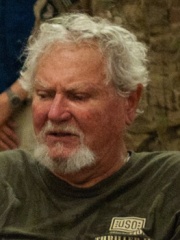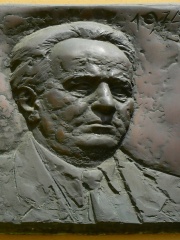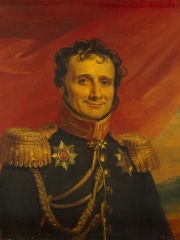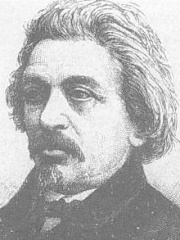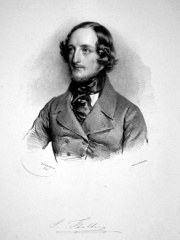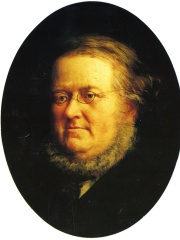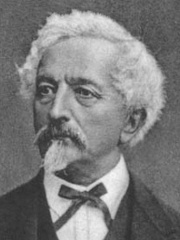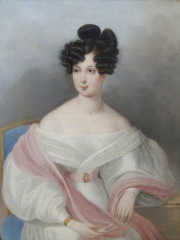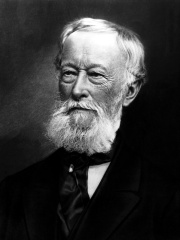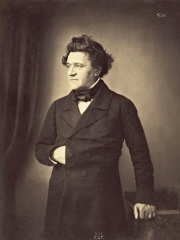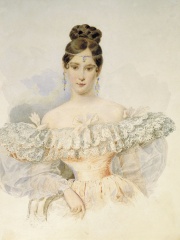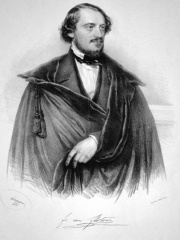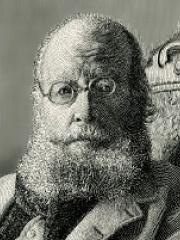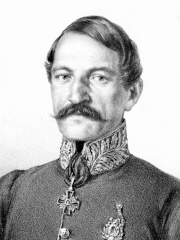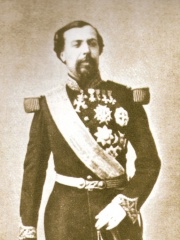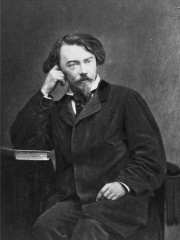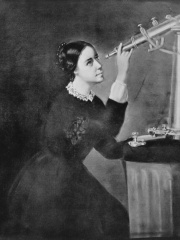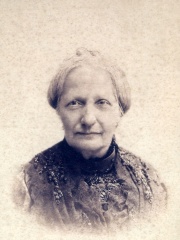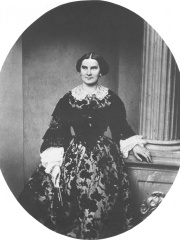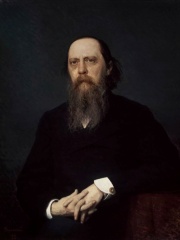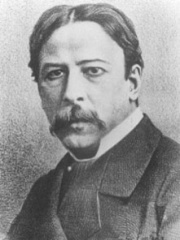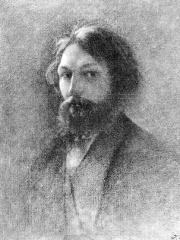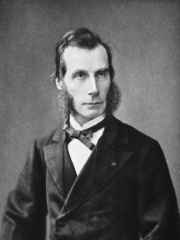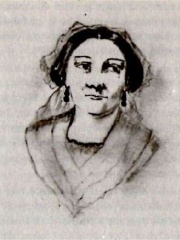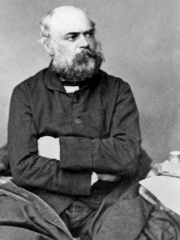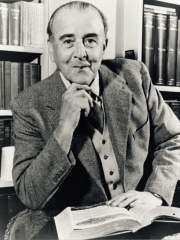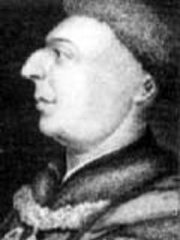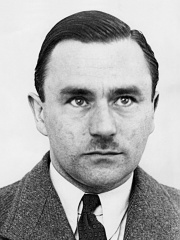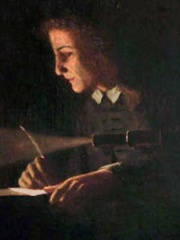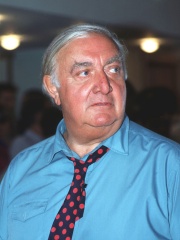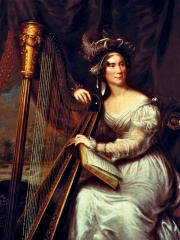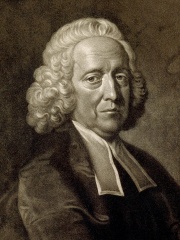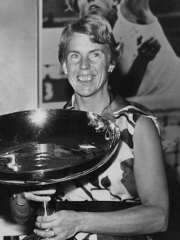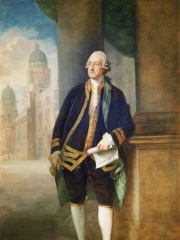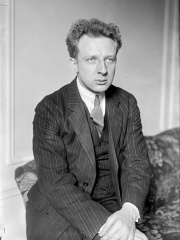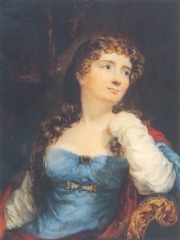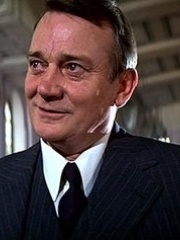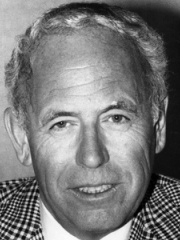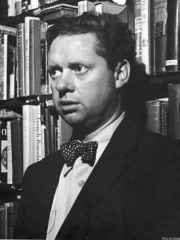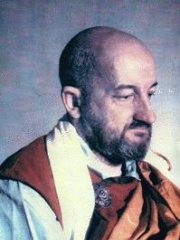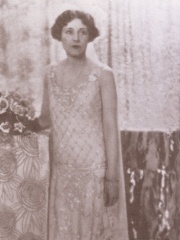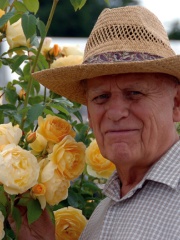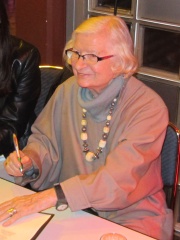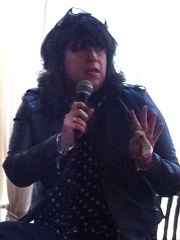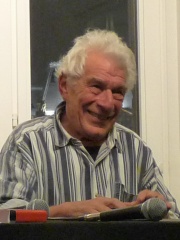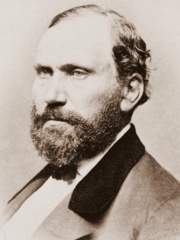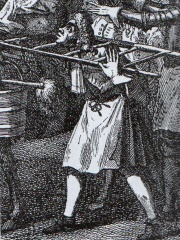WRITER
Robert Browning
1812 - 1889
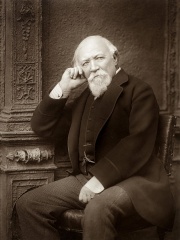
 Robert Browning
Robert Browning
Robert Browning (7 May 1812 – 12 December 1889) was an English poet and playwright whose dramatic monologues put him high among the Victorian poets. He was noted for irony, characterization, dark humour, social commentary, historical settings and challenging vocabulary and syntax. His early long poems Pauline (1833) and Paracelsus (1835) were acclaimed, but his reputation dwindled for a time – his 1840 poem Sordello was seen as wilfully obscure – and took over a decade to recover, by which time he had moved from Shelleyan forms to a more personal style. In 1846, he married fellow poet Elizabeth Barrett and moved to Italy. Read more on Wikipedia
His biography is available in 56 different languages on Wikipedia (up from 54 in 2024). Robert Browning is the 1,385th most popular writer (down from 1,377th in 2024), the 1,251st most popular biography from United Kingdom (down from 1,048th in 2019) and the 131st most popular British Writer.
Robert Browning is most famous for his poem "Pippa Passes" and his collection of poems "Men and Women."
Memorability Metrics
Page views of Robert Browning by language
Among WRITERS
Among writers, Robert Browning ranks 1,385 out of 7,302. Before him are Sławomir Mrożek, Jean Chapelain, Deepak Chopra, Arsen Kotsoyev, Jaan Kross, and James Patterson. After him are Nicolás Gómez Dávila, Péter Nádas, Erskine Caldwell, Clive Cussler, Béla Balázs, and Antoine-Henri Jomini.
Most Popular Writers in Wikipedia
Go to all RankingsSławomir Mrożek
1930 - 2013
HPI: 65.87
Rank: 1,379
Jean Chapelain
1595 - 1674
HPI: 65.86
Rank: 1,380
Deepak Chopra
1946 - Present
HPI: 65.85
Rank: 1,381
Arsen Kotsoyev
1872 - 1944
HPI: 65.85
Rank: 1,382
Jaan Kross
1920 - 2007
HPI: 65.84
Rank: 1,383
James Patterson
1947 - Present
HPI: 65.83
Rank: 1,384
Robert Browning
1812 - 1889
HPI: 65.83
Rank: 1,385
Nicolás Gómez Dávila
1913 - 1994
HPI: 65.83
Rank: 1,386
Péter Nádas
1942 - Present
HPI: 65.82
Rank: 1,387
Erskine Caldwell
1903 - 1987
HPI: 65.82
Rank: 1,388
Clive Cussler
1931 - 2020
HPI: 65.82
Rank: 1,389
Béla Balázs
1884 - 1949
HPI: 65.81
Rank: 1,390
Antoine-Henri Jomini
1779 - 1869
HPI: 65.81
Rank: 1,391
Contemporaries
Among people born in 1812, Robert Browning ranks 19. Before him are Moses Hess, Sigismond Thalberg, Peter Christen Asbjørnsen, Ascanio Sobrero, Countess Claudine Rhédey von Kis-Rhéde, and Alfred Krupp. After him are Pertevniyal Sultan, Paul Abadie, Natalia Pushkina, Friedrich von Flotow, Edward Lear, and Ilija Garašanin. Among people deceased in 1889, Robert Browning ranks 23. Before him are Charles III, Prince of Monaco, Auguste Villiers de l'Isle-Adam, Maria Mitchell, Teresa Cristina of the Two Sicilies, Marie of Prussia, and Mikhail Saltykov-Shchedrin. After him are Giovanni Bottesini, Jules Dupré, Numa Denis Fustel de Coulanges, Gaston Planté, Şevkefza Kadın, and Adolf von Henselt.
Others Born in 1812
Go to all RankingsMoses Hess
PHILOSOPHER
1812 - 1875
HPI: 67.48
Rank: 13
Sigismond Thalberg
COMPOSER
1812 - 1871
HPI: 67.00
Rank: 14
Peter Christen Asbjørnsen
WRITER
1812 - 1885
HPI: 66.59
Rank: 15
Ascanio Sobrero
CHEMIST
1812 - 1888
HPI: 66.38
Rank: 16
Countess Claudine Rhédey von Kis-Rhéde
POLITICIAN
1812 - 1841
HPI: 66.33
Rank: 17
Alfred Krupp
INVENTOR
1812 - 1887
HPI: 66.09
Rank: 18
Robert Browning
WRITER
1812 - 1889
HPI: 65.83
Rank: 19
Pertevniyal Sultan
POLITICIAN
1812 - 1883
HPI: 65.62
Rank: 20
Paul Abadie
ARCHITECT
1812 - 1884
HPI: 65.27
Rank: 21
Natalia Pushkina
COMPANION
1812 - 1863
HPI: 64.81
Rank: 22
Friedrich von Flotow
COMPOSER
1812 - 1883
HPI: 64.31
Rank: 23
Edward Lear
WRITER
1812 - 1888
HPI: 64.25
Rank: 24
Ilija Garašanin
POLITICIAN
1812 - 1874
HPI: 64.23
Rank: 25
Others Deceased in 1889
Go to all RankingsCharles III, Prince of Monaco
POLITICIAN
1818 - 1889
HPI: 68.23
Rank: 17
Auguste Villiers de l'Isle-Adam
WRITER
1838 - 1889
HPI: 67.45
Rank: 18
Maria Mitchell
ASTRONOMER
1818 - 1889
HPI: 67.22
Rank: 19
Teresa Cristina of the Two Sicilies
COMPANION
1822 - 1889
HPI: 67.16
Rank: 20
Marie of Prussia
POLITICIAN
1825 - 1889
HPI: 66.92
Rank: 21
Mikhail Saltykov-Shchedrin
WRITER
1826 - 1889
HPI: 66.06
Rank: 22
Robert Browning
WRITER
1812 - 1889
HPI: 65.83
Rank: 23
Giovanni Bottesini
COMPOSER
1821 - 1889
HPI: 65.67
Rank: 24
Jules Dupré
PAINTER
1811 - 1889
HPI: 65.31
Rank: 25
Numa Denis Fustel de Coulanges
POLITICIAN
1830 - 1889
HPI: 65.14
Rank: 26
Gaston Planté
PHYSICIST
1834 - 1889
HPI: 64.80
Rank: 27
Şevkefza Kadın
POLITICIAN
1820 - 1889
HPI: 64.43
Rank: 28
Adolf von Henselt
COMPOSER
1814 - 1889
HPI: 64.15
Rank: 29
In United Kingdom
Among people born in United Kingdom, Robert Browning ranks 1,251 out of 8,785. Before him are W. O. Bentley (1888), John Dunstaple (1390), John Haigh (1909), Jeremiah Horrocks (1618), James Stirling (1926), and Louisa Adams (1775). After him are Stephen Hales (1677), Ann Jones (1938), John Montagu, 4th Earl of Sandwich (1718), Leopold Stokowski (1882), Lady Byron (1792), and Denholm Elliott (1922).
Others born in United Kingdom
Go to all RankingsW. O. Bentley
INVENTOR
1888 - 1971
HPI: 65.86
Rank: 1,245
John Dunstaple
COMPOSER
1390 - 1453
HPI: 65.85
Rank: 1,246
John Haigh
EXTREMIST
1909 - 1949
HPI: 65.85
Rank: 1,247
Jeremiah Horrocks
ASTRONOMER
1618 - 1641
HPI: 65.85
Rank: 1,248
James Stirling
ARCHITECT
1926 - 1992
HPI: 65.85
Rank: 1,249
Louisa Adams
POLITICIAN
1775 - 1852
HPI: 65.85
Rank: 1,250
Robert Browning
WRITER
1812 - 1889
HPI: 65.83
Rank: 1,251
Stephen Hales
PHYSICIST
1677 - 1761
HPI: 65.83
Rank: 1,252
Ann Jones
TENNIS PLAYER
1938 - Present
HPI: 65.83
Rank: 1,253
John Montagu, 4th Earl of Sandwich
POLITICIAN
1718 - 1792
HPI: 65.81
Rank: 1,254
Leopold Stokowski
CONDUCTOR
1882 - 1977
HPI: 65.80
Rank: 1,255
Lady Byron
MATHEMATICIAN
1792 - 1860
HPI: 65.80
Rank: 1,256
Denholm Elliott
ACTOR
1922 - 1992
HPI: 65.79
Rank: 1,257
Among WRITERS In United Kingdom
Among writers born in United Kingdom, Robert Browning ranks 131. Before him are Arthur Hailey (1920), Dylan Thomas (1914), Lobsang Rampa (1910), Barbara Cartland (1901), Ken Robinson (1950), and David C. H. Austin (1926). After him are P. D. James (1920), E. L. James (1963), John Berger (1926), Allan Pinkerton (1819), Ruth Rendell (1930), and James Anderson (1680).
Arthur Hailey
1920 - 2004
HPI: 66.33
Rank: 125
Dylan Thomas
1914 - 1953
HPI: 66.27
Rank: 126
Lobsang Rampa
1910 - 1981
HPI: 66.23
Rank: 127
Barbara Cartland
1901 - 2000
HPI: 66.10
Rank: 128
Ken Robinson
1950 - 2020
HPI: 66.03
Rank: 129
David C. H. Austin
1926 - 2018
HPI: 65.99
Rank: 130
Robert Browning
1812 - 1889
HPI: 65.83
Rank: 131
P. D. James
1920 - 2014
HPI: 65.79
Rank: 132
E. L. James
1963 - Present
HPI: 65.78
Rank: 133
John Berger
1926 - 2017
HPI: 65.70
Rank: 134
Allan Pinkerton
1819 - 1884
HPI: 65.70
Rank: 135
Ruth Rendell
1930 - 2015
HPI: 65.62
Rank: 136
James Anderson
1680 - 1739
HPI: 65.59
Rank: 137
